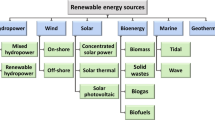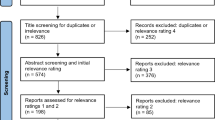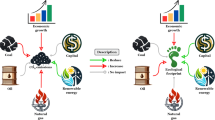Abstract
The rebound effect reflects the difference between the expected energy savings from energy efficiency, and the real ones, considering the former is higher than the latter. In some extreme cases, some scholars consider energy use can even increase after an energy efficiency improvement. This is due to agents’ behavioural responses. After almost four decades of theoretical and empirical studies in the field, there is a strong consensus amongst energy economists that the rebound effect of energy efficiency exists, although its importance is still being discussed. However, there are few empirical studies exploring its potential solutions. In this research, we empirically assess the effects of energy taxation on the rebound effect. Using a dynamic energy-economy computable general equilibrium (CGE) model of the Spanish economy, we test a global energy efficiency increase of 5.00%, and at the same time, different ad valorem tax rates on energy industries. We find that a tax rate of 3.76% would totally counteract the economy-wide rebound effect of 82.82% we estimate for the Spanish economy. This tax rate would still allow some economic benefits provided by the increase of energy productivity.



Similar content being viewed by others
References
Allan, G., Hanley, N., McGregor, P., Swales, K., & Turner, K. (2007). The impact of increased efficiency in the industrial use of energy: A computable general equilibrium analysis for the United Kingdom. Energy Economics, 29(4), 779–798.
Broberg, T., Berg, C., & Samakovlis, E. (2015). The economy-wide rebound effect from improved energy efficiency in Swedish industries–A general equilibrium analysis. Energy Policy, 83, 26–37.
Brookes, L. G. (1979). A low energy strategy for the UK, at G. Leach et al.: a Review and Reply. Atom, 269, 3–8.
Cao, J., Ho, S., & Jorgenson, D. W. (2013). The economics of environmental policies in China. In C. P. Nielsen & M. S. Ho (Eds.), Clearer skies over China. Cambridge: MIT press.
Druckman, A., Chitnis, M., Sorrell, S., & Jackson, T. (2011). Missing carbon reductions? Exploring rebound and backfire effects in UK households. Energy Policy, 39(6), 3572–3581.
Font Vivanco, D., McDowall, W., Freire-González, J., Kemp, R., & van der Voet, E. (2016a). The foundations of the environmental rebound effect and its contribution towards a general framework. Ecological Economics, 125, 60–69.
Font Vivanco, D., Kemp, R., & van der Voet, E. (2016b). How to deal with the rebound effect? A policy-oriented approach. Energy Policy, 94, 114–125.
Freire-González, J. (2010). Empirical evidence of direct rebound effect in Catalonia. Energy Policy, 38(5), 2309–2314.
Freire-González, J. (2011). Methods to empirically estimate direct and indirect rebound effect of energy-saving technological changes in households. Ecological Modelling, 223(1), 32–40.
Freire-González, J. (2017). A new way to estimate the direct and indirect rebound effect and other rebound indicators. Energy, 128, 394–402.
Freire-González, J. (2018). Environmental taxation and the double dividend hypothesis in CGE modelling literature: a critical review. Journal of Policy Modeling, 40(1), 194–223.
Freire-González, J., & Ho, M. S. (2018). Environmental fiscal reform and the double dividend: Evidence from a dynamic general equilibrium model. Sustainability, 10(2), 501.
Freire-González, J., & Ho, M. S. (2019). Carbon taxes and the double dividend hypothesis in a recursive-dynamic CGE model for Spain. Economic Systems Research, 31(2), 267–284.
Freire-González, J., & Puig-Ventosa, I. (2015). Energy efficiency policies and the Jevons paradox. International Journal of Energy Economics and Policy, 5(1), 69.
Giraudet, L. G., & Quirion, P. (2008). Efficiency and distributional impacts of tradable white certificates compared to taxes, subsidies and regulations. Revue d'économie politique, 118(6), 885–914.
Greening, L. A., Greene, D. L., & Difiglio, C. (2000). Energy efficiency and consumption—the rebound effect—a survey. Energy policy, 28(6-7), 389–401.
Grepperud, S., & Rasmussen, I. (2004). A general equilibrium assessment of rebound effects. Energy economics, 26(2), 261–282.
Ho, M. S., & Jorgenson, D. (2007). Policies to control air pollution damages. In M. S. Ho & C. P. Nielsen (Eds.), Clearing the air: The health and economic damages of air pollution in China (pp. 331–372). Cambridge: MIT Press.
Jäger, K. (2016). EU KLEMS growth and productivity accounts 2016 release, statistical module. Description of methodology and country notes for Spain.
Jevons, W. S. (1865). The coal question. London: Macmillan and Co.
Khazzoom, J. D. (1980). Economic implications of mandated efficiency standards for household appliances. Energy Journal, 1, 21–39.
Lovins, A. B., Henly, J., Ruderman, H., & Levine, M. D. (1988). Energy saving resulting from the adoption of more efficient appliances: another view; a follow-up. The Energy Journal, 92, 155.
Peng, J. T., Wang, Y., Zhang, X., He, Y., Taketani, M., Shi, R., & Zhu, X. D. (2019). Economic and welfare influences of an energy excise tax in Jiangsu province of China: A computable general equilibrium approach. Journal of Cleaner Production, 211, 1403–1411.
Ruzzenenti, F., & Basosi, R. (2008). The rebound effect: An evolutionary perspective. Ecological Economics, 67, 526–537.
Saunders, H. D. (1992). The Khazzoom-Brookes postulate & neoclassical growth. The Energy Journal, 13(4), 131–148.
Saunders, H. D. (2013). Historical evidence for energy efficiency rebound in 30 US sectors and a toolkit for rebound analysts. Technological Forecasting and Social Change, 80(7), 1317–1330.
Saunders, H. D. (2018). Mitigating rebound with energy taxes, the selected works of Harry D. Saunders. Bepress.
Sorrell, S. (2007). The rebound effect: an assessment of the evidence for economy-wide energy savings from improved energy efficiency. London: UK Energy Research Centre.
Sorrell, S., Dimitropoulos, J., & Sommerville, M. (2009). Empirical estimates of the direct rebound effect: A review. Energy policy, 37(4), 1356–1371.
Tukker, A., de Koning, A., Wood, R., Hawkins, T., Lutter, S., Acosta, J., Rueda Cantuche, J. M., Bouwmeester, M., Oosterhaven, J., Drosdowski, T., & Kuenen, J. (2013). EXIOPOL - Development and illustrative analyses of a detailed global MR EE SUT/IOT. Economic Systems Research, 25(1), 50–70.
Turner, K. (2008). A computable general equilibrium analysis of the relative price sensitivity required to induce rebound effects in response to an improvement in energy efficiency in the UK economy. Discussion paper. SIRE-DP-2008-20. University of Strathclyde.
van den Bergh, J. C. (2015). Pricing would limit carbon rebound. Nature, 526(7572), 195–195.
Wood, R., Stadler, K., Bulavskaya, T., Lutter, S., Giljum, S., de Koning, A., Kuenen, J., Schütz, H., Acosta-Fernández, J., Usubiaga, A., Simas, M., Ivanova, O., Weinzettel, J., Schmidt, J. H., Merciai, S., & Tukker, A. (2015). Global sustainability accounting: Developing Exiobase for multi-regional footprint analysis. Sustainability, 7(1), 138–163.
Funding
This project received funding from the European Union’s Horizon 2020 Research and Innovation Program under the Marie Sklodowska-Curie grant agreement, No. 654189. It also received the support of the Beatriu de Pinós postdoctoral programme of the Government of Catalonia’s Secretariat for Universities and Research of the Ministry of Economy and Knowledge.
Author information
Authors and Affiliations
Corresponding author
Ethics declarations
Conflict of interest
The authors declare that they have no conflict of interest.
Additional information
Publisher’s note
Springer Nature remains neutral with regard to jurisdictional claims in published maps and institutional affiliations.
Rights and permissions
About this article
Cite this article
Freire-González, J. Energy taxation policies can counteract the rebound effect: analysis within a general equilibrium framework. Energy Efficiency 13, 69–78 (2020). https://doi.org/10.1007/s12053-019-09830-x
Received:
Accepted:
Published:
Issue Date:
DOI: https://doi.org/10.1007/s12053-019-09830-x




